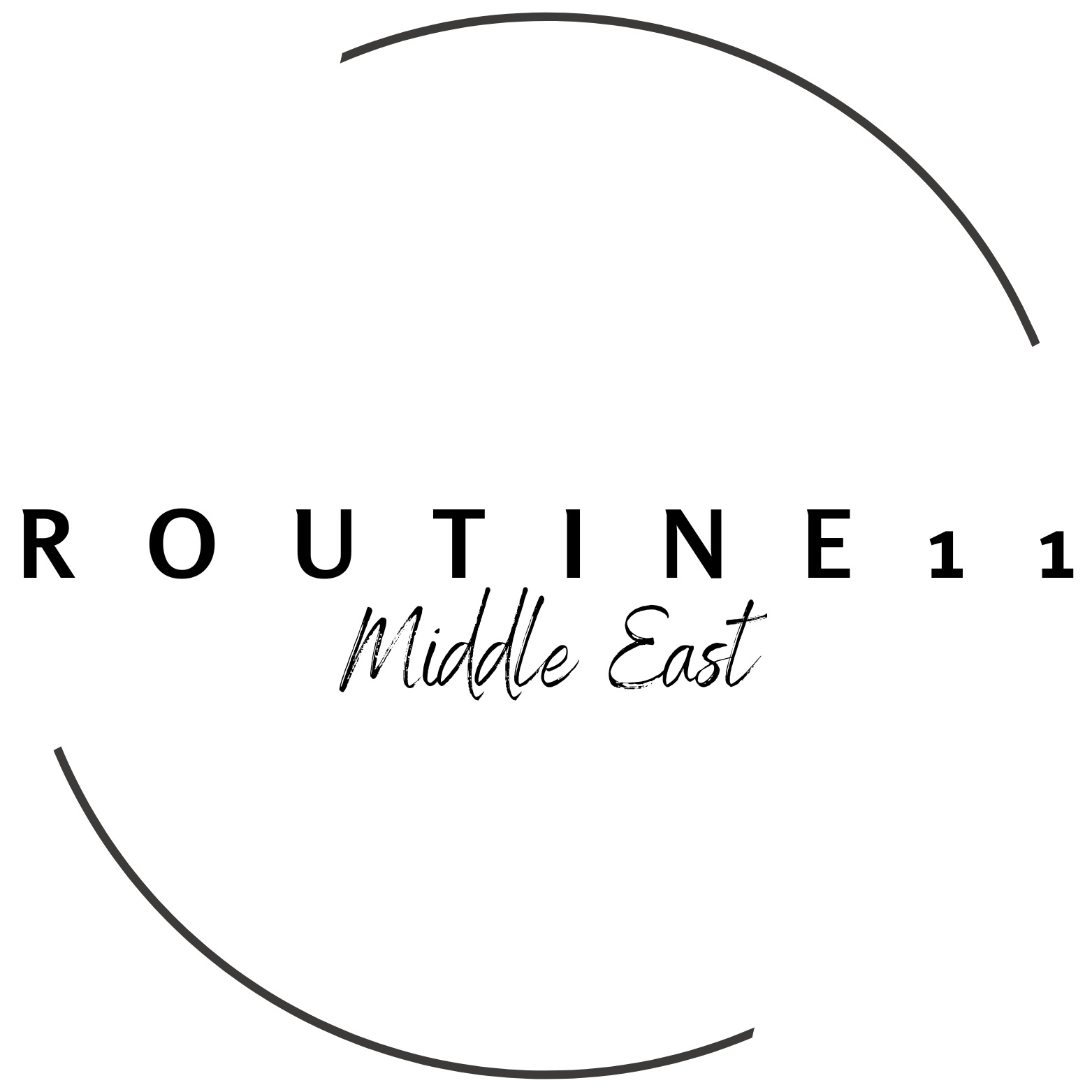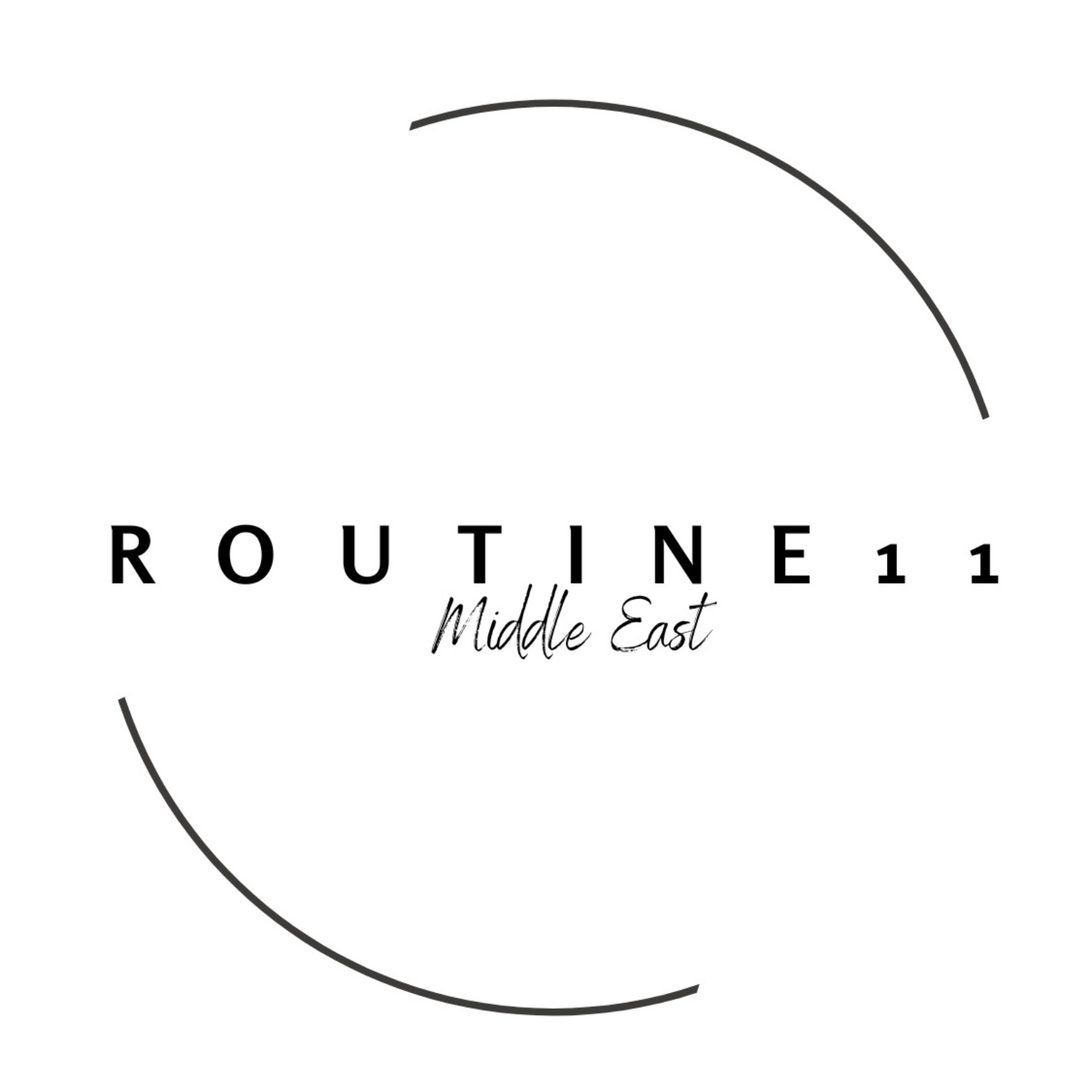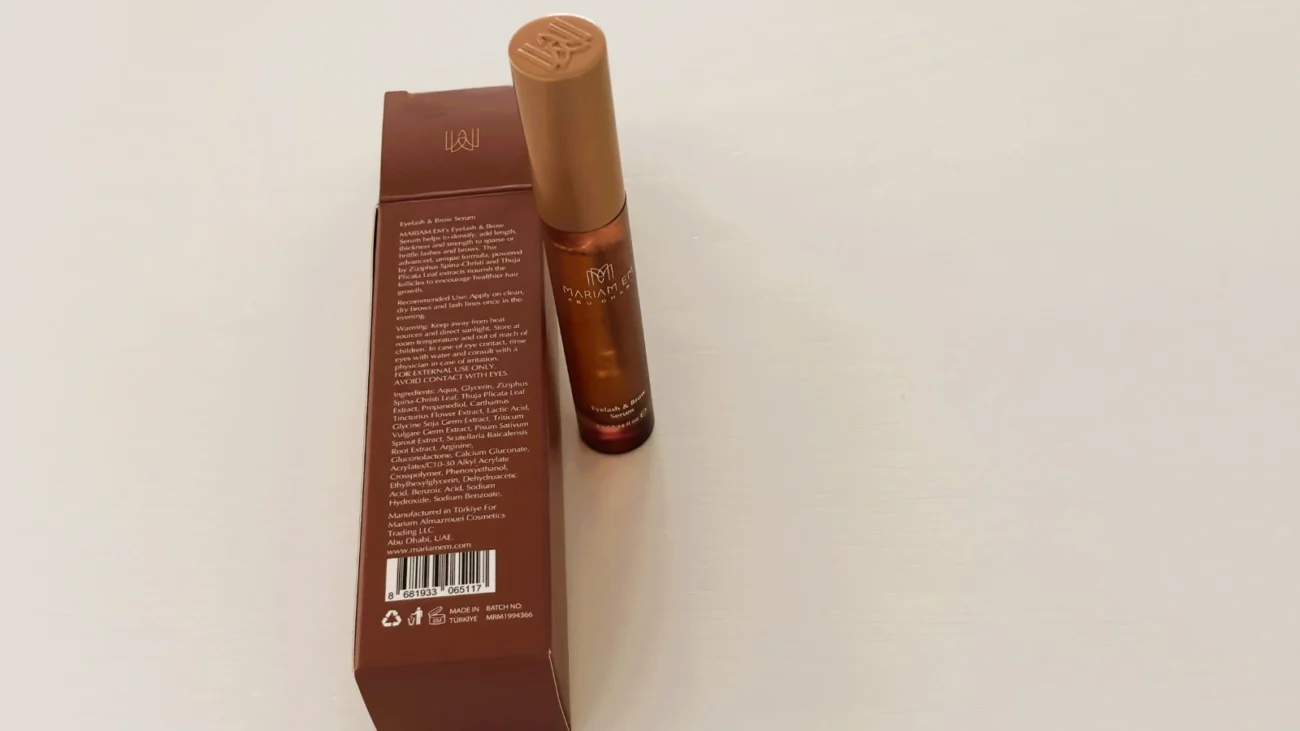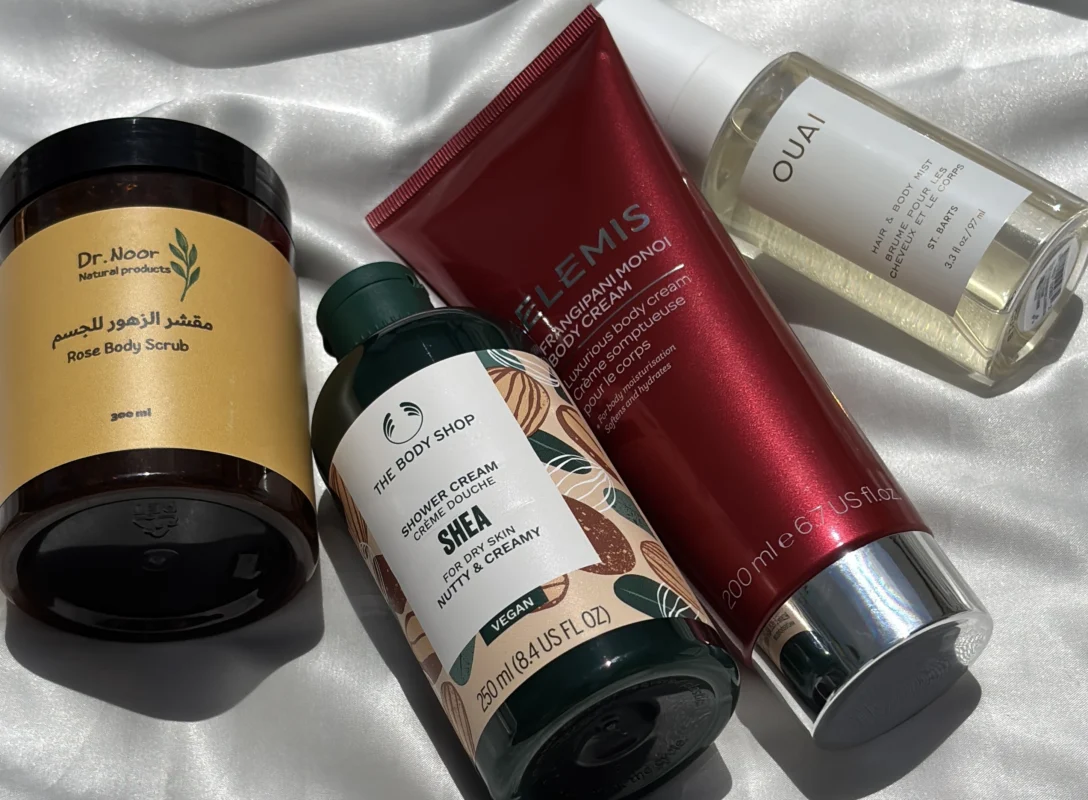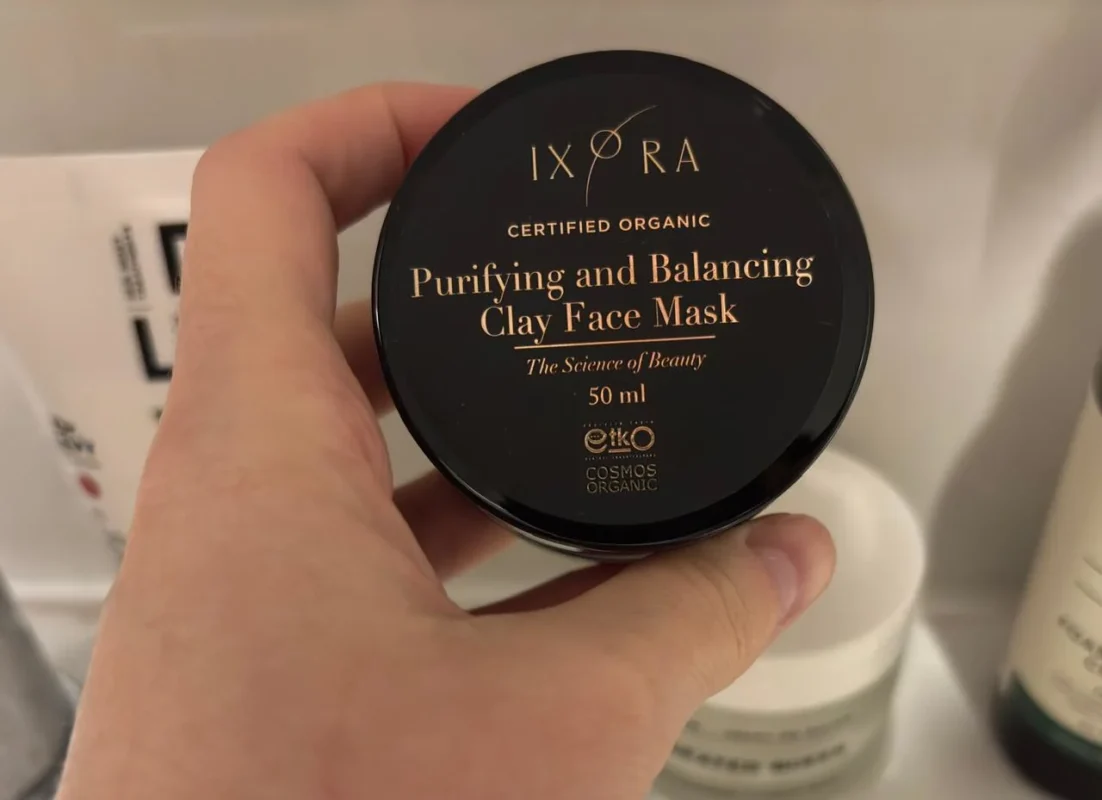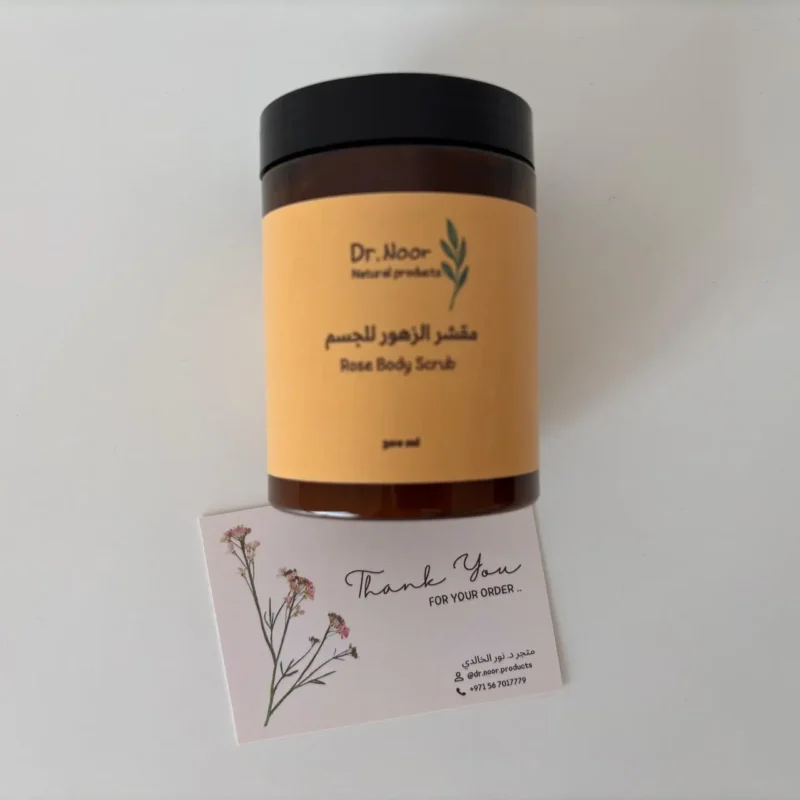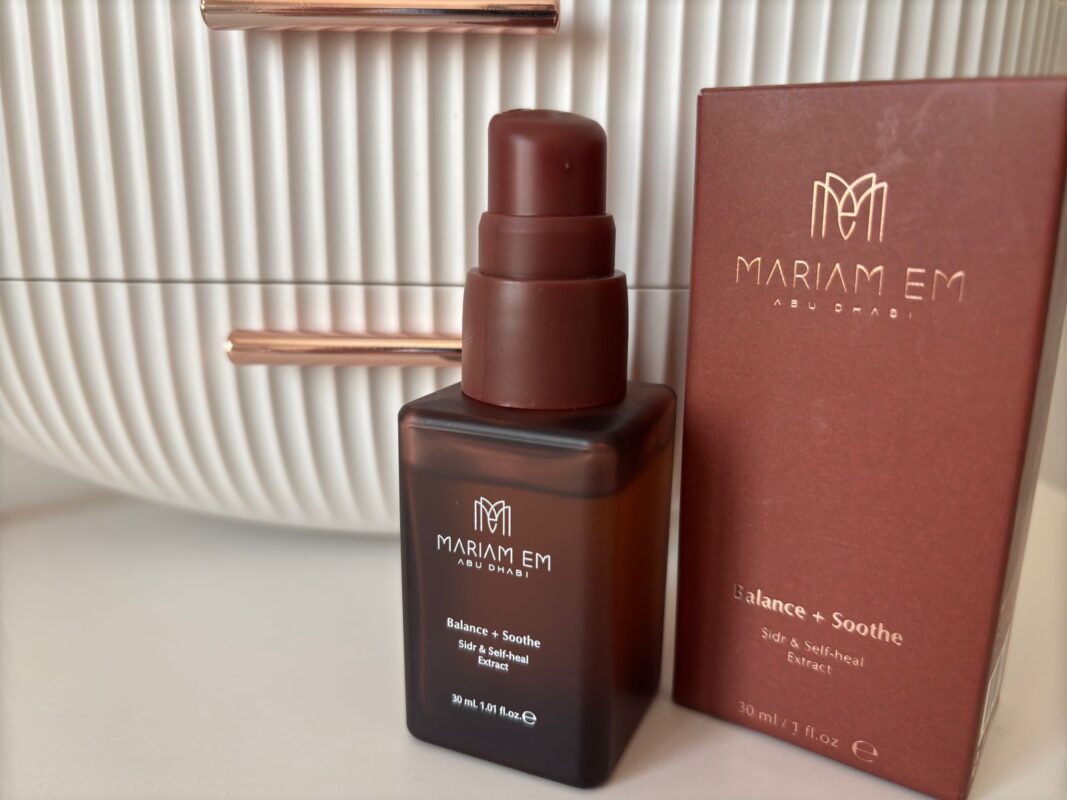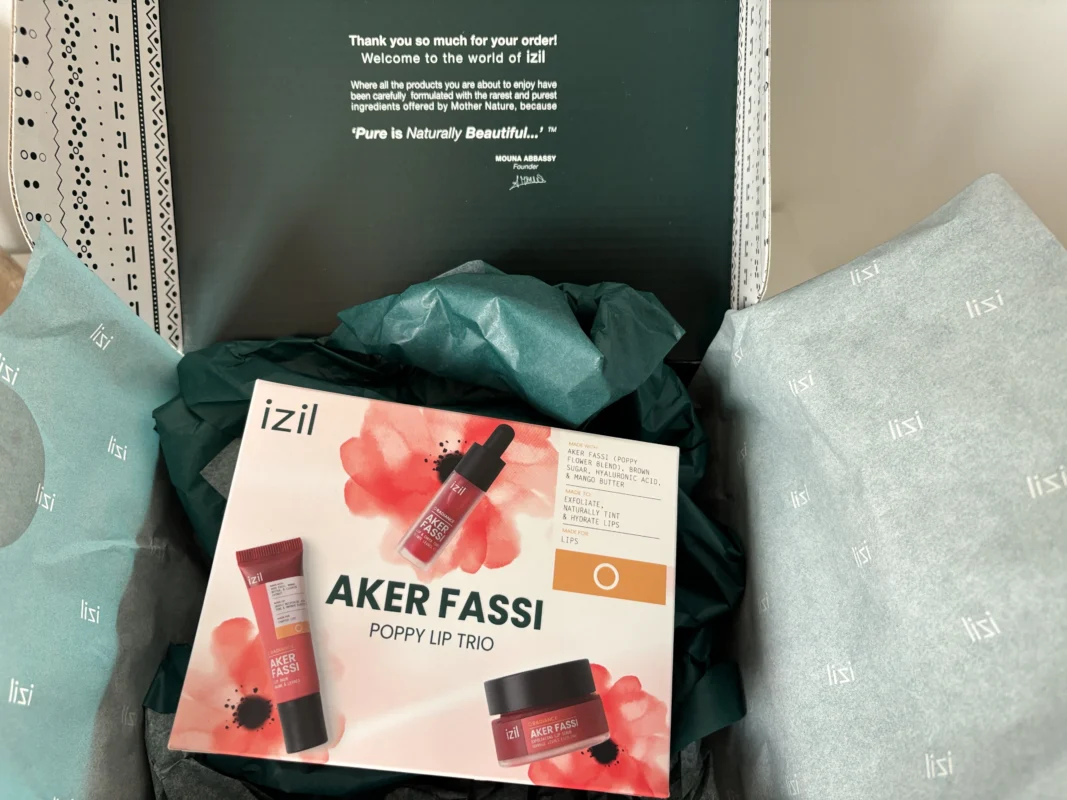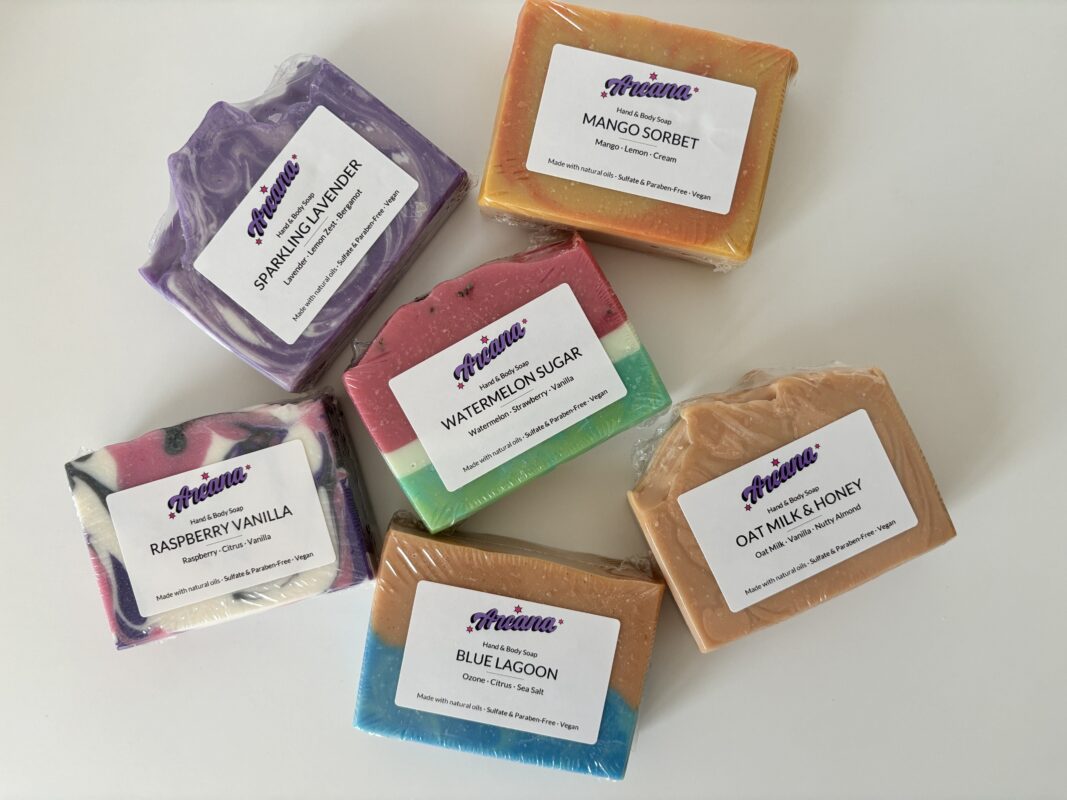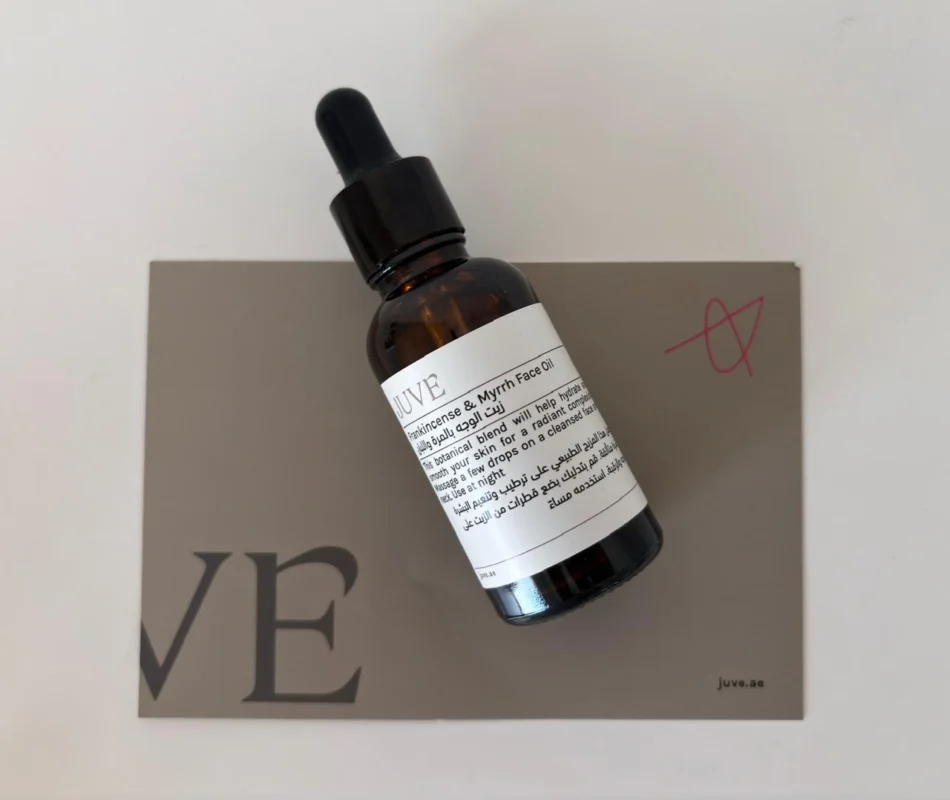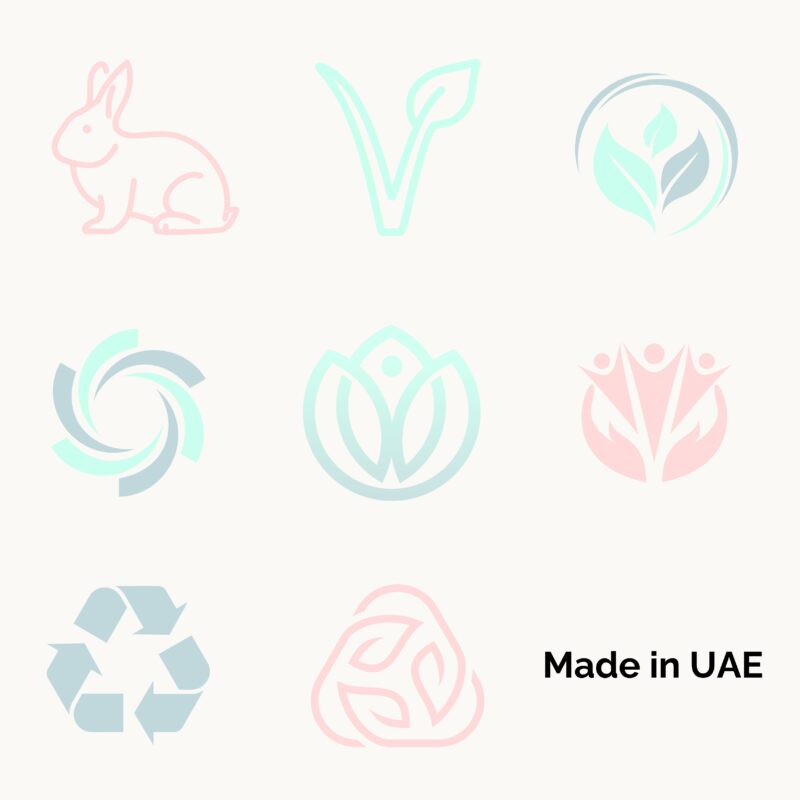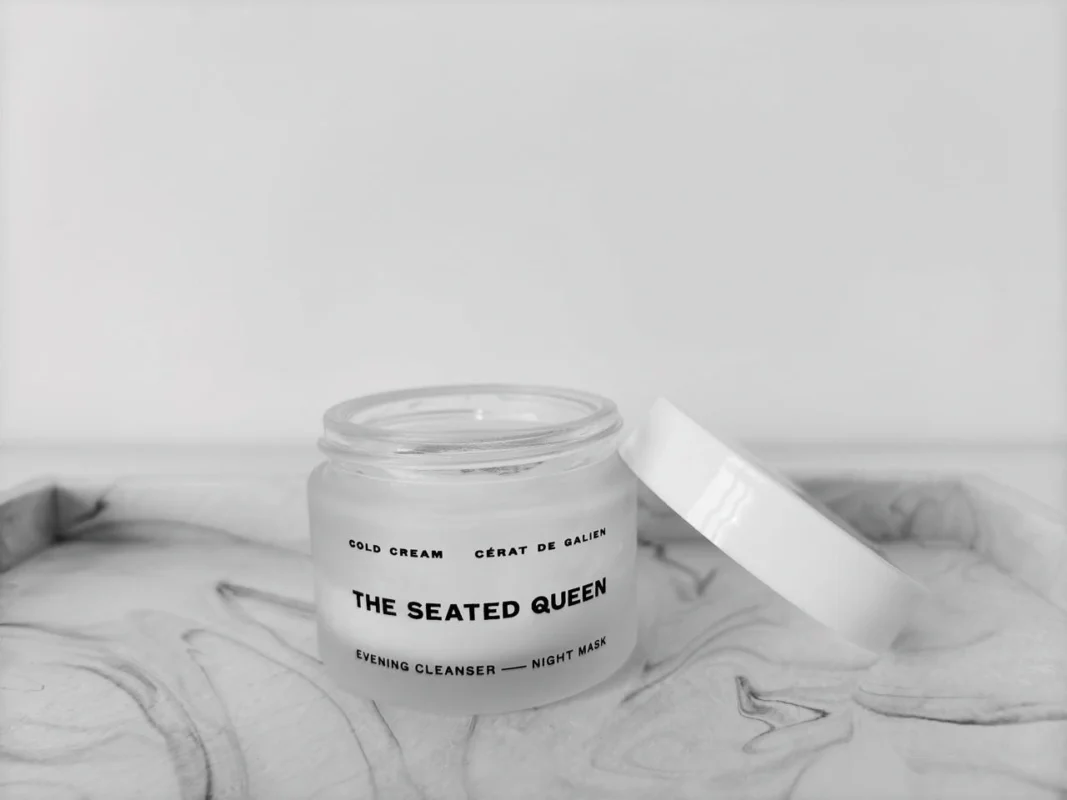Hormones are important; and awareness about the levels of hormones in our bodies, especially when we find ourselves in a new, arid environment, gives us inspiration when we make our next beauty product purchase.
As I’m a new expat in an arid environment, approaching 40, and scared of what will happen next, I decided to pin this down.
We ladies deal with primary female hormones: estrogen, progesterone, and testosterone; however, estrogen and progesterone are the two hormones that regulate our menstrual cycle and play significant roles in our health. These hormones have a direct impact on the skincare routine and skin health due to their influence on various physiological processes in the body.
Estrogen is the primary female sex hormone. It’s responsible for the development and control of the female reproductive organs. It has an integral part in supporting skin health and appearance.
Estrogen helps to hydrate the skin. It contributes to increased hyaluronic acid production to support the skin in maintaining its moisture and staying hydrated.
It supports collagen synthesis, promoting skin elasticity and firmness.
Estrogen helps maintain the thickness of the skin, giving it a more youthful appearance; it aids in the skin’s ability to repair itself and heal wounds.
Changes in estrogen levels influence skin conditions like acne breakouts or skin dryness during various life stages (like pregnancy or the menstrual cycle)
Having too much or too little estrogen can indeed have significant effects on the body, including potential impacts on skin health.
Too much estrogen is a condition that occurs when there is an imbalance between estrogen and other hormones, such as progesterone. Estrogen dominance may lead to skin issues like acne, increased skin sensitivity, and hyperpigmentation.
Low estrogen levels can occur during menopause or due to certain medical conditions and may contribute to skin dryness, reduced collagen production, and accelerated skin aging.
Regarding beauty products or ingredients to help with estrogen-related skin concerns, it is wise to consult a dermatologist or an endocrinologist to determine the best approach for your situation. A healthcare professional can assess whether any hormonal imbalances need to be addressed medically.
While there are no beauty products that directly contain estrogen, some skincare ingredients may indirectly support overall skin health, including collagen production and skin hydration:
• Retinoids, derivatives of vitamin A, can promote collagen production and skin cell turnover, helping with skin texture and appearance.
• Hyaluronic acid, a hydrating ingredient, retains water in the skin, keeping it plump and supple.
• Antioxidant ingredients (vitamins C and E) protect the skin from free radical damage.
• Specific peptides can stimulate collagen synthesis, potentially aiding skin firmness and elasticity.
Individual responses to skincare products and ingredients vary. Before committing myself to a new brand or product, I always test a sample; if you have specific skin concerns related to hormonal imbalances, consult your physician to address the root cause.
Progesterone is another essential female sex hormone involved in menstrual cycle and pregnancy. Its effects on the skin are different from estrogen. Progesterone can impact oil production. It stimulates the sebaceous glands, leading to increased oil production, which causes acne flare-ups during certain phases of the menstrual cycle.
Progesterone has anti-inflammatory properties and is beneficial for reducing skin redness and irritation.
Fluctuations in progesterone levels make the skin more sensitive and reactive.
Even if testosterone is associated with male hormones, women also have small amounts of testosterone in their bodies.
Like progesterone, testosterone can influence sebum production, potentially contributing to acne breakouts.
Excess testosterone leads to unwanted facial and body hair growth in women.
Balancing these hormones is essential for maintaining overall skin health and appearance. Fluctuations or imbalances in estrogen and progesterone during the menstrual cycle or menopause lead to changes in the skin, including acne, dryness, or increased sensitivity. Similarly, hormonal fluctuations during pregnancy also impact the skin.
Considering these hormonal effects, we may need to adjust our beauty routines and skincare products based on our hormonal changes and specific skin concerns. Regular cleansing, moisturizing, and sun protection remain crucial elements of any skincare routine. If hormonal imbalances are causing persistent skin issues, you need to contact your dermatologist a.s.a.p.
Yes, weather and environmental factors impact the functioning of our female hormones to some extent.
Our body’s internal clock (the circadian rhythm) is influenced by changes in daylight and temperature throughout the seasons. These variations indirectly affect hormone production and secretion. For instance, some studies suggest that melatonin, a hormone that regulates sleep-wake cycles, may be influenced by changes in daylight during different seasons. This, in turn, could have secondary effects on other hormones.
Vitamin D synthesis is vital for hormonal regulation. We need exposure to sunlight to make the Vitamin D synthesis happen.
Vitamin D deficiency, which can be more prevalent in areas with limited sunlight, may impact hormone levels, including sex hormones like estrogen and progesterone.
Extreme temperatures (whether hot or cold) cause stress on our bodies. Stress activates the release of cortisol, affecting the balance of other hormones, including sex hormones.
Spending more time indoors (like we, the UAE expats, do from May until October), especially in buildings with poor ventilation, exposes us to various environmental toxins, such as volatile organic compounds (VOCs), which may have disruptive effects on hormone regulation.
Air pollution, especially in urban environments, exposes us to harmful particles and chemicals that might interfere with hormone function.
It’s important to note that while weather and environmental factors can influence hormone activity, our responses vary significantly. The overall impact of these factors on hormonal health depends on our genetics, lifestyle, and hormonal balance.
Weather in the Middle East, like any other region, has its effects on the functioning of our female hormones. However, it’s important to understand that the impact of weather on hormones is not exclusive to this specific region and can occur in different parts of the world as well.
The Middle East is known for its hot and arid climate, especially during summer. High temperatures cause stress on the body, leading to an increase in cortisol levels. Cortisol (the stress hormone) affects the balance of other hormones in the body, including female hormones (estrogen and progesterone).
The dry and hot climate in the Middle East leads to increased perspiration and dehydration. Dehydration affects the body’s health and may also impact hormone production and secretion.
Some parts of the Middle East, mainly urban areas, experience air pollution due to industrial activities and transportation.
Exposure to environmental pollutants disrupts the hormonal balance.
As new expats in the UAE, we must focus on balance to support our hormonal health in this new weather we arrived in. And a balanced lifestyle includes:
• Staying hydrated.
• Seeking appropriate sun exposure for vitamin D synthesis.
• Managing stress.
• Getting regular exercise.
• Adopting a healthy diet.
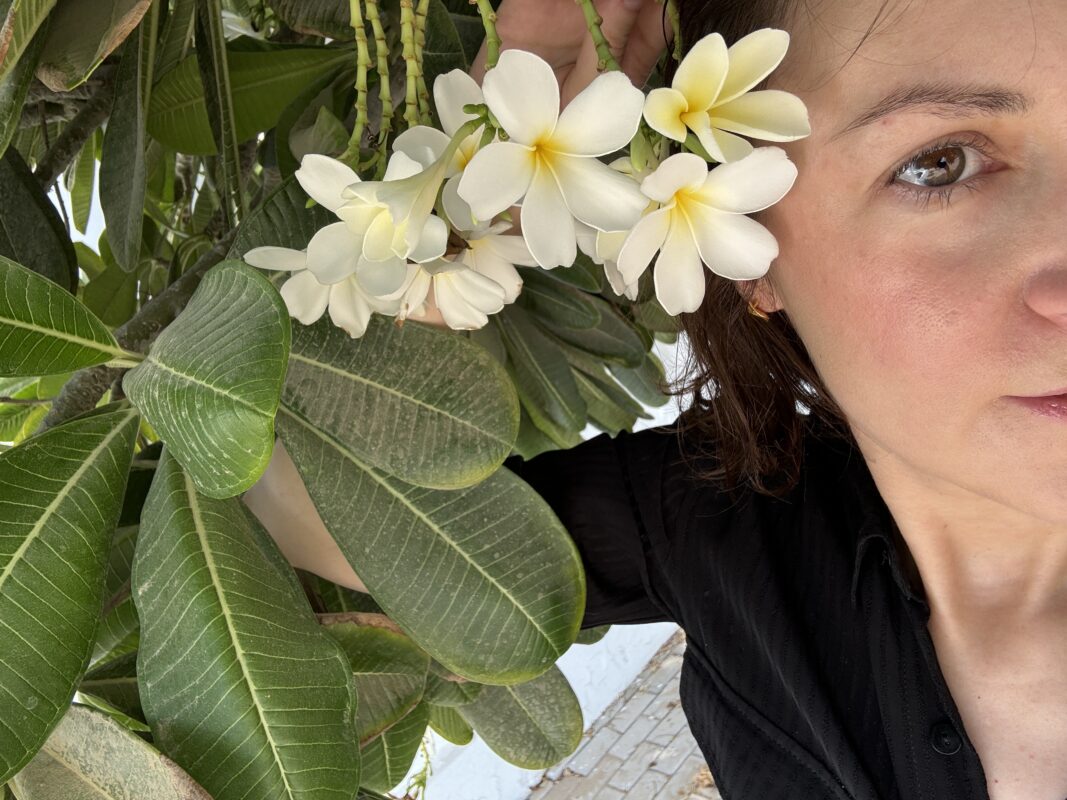
No specific beauty products or ingredients are designed to directly address the impact of weather in the UAE on female hormones. However, certain skincare ingredients and products can help support skin health and minimize the effects of environmental factors, which may indirectly benefit hormonal balance. But I did consider these:
– Hyaluronic acid for skin moisture and reducing dehydration;
– Retinoid ingredients aid skin cell turnover, reducing fine lines and improving skin texture. At first, consider the lowest concentrations and gradually increase the usage to avoid irritation. Always apply in the evening, and remember the sunscreen the following day! 🙂 (lesson learned the hard way)
– Antioxidant-rich products like those containing vitamin C, E, or green tea extracts help neutralize free radicals and protect the skin.
– Gentle cleansers remove dirt and impurities without stripping the skin of its natural oils.
– Look for products containing ceramides, fatty acids, or niacinamide, which help repair and strengthen the skin barrier. A solid skin barrier is our secret for maintaining optimal skin health, especially in challenging climates. (in Byoma, I trust!)
– Invest in a broad-spectrum sunscreen with sufficient SPF to protect the skin from destructive UV rays.
While not a skincare product, incorporating stress-relief techniques into our beauty routine helps manage the impact of stress on hormonal balance. Stress can affect hormones, and finding ways to relax and unwind is beneficial for our health and skin health. It’s one of the reasons I opened this space and started writing. As a stress-relief technique, writing down my thoughts and feelings in a blog is a therapeutic way to express my emotions and gain insight into stress triggers.
Specific skin concerns related to the UAE’s specific weather and hormonal impact must be addressed to a dermatologist so that they can focus on personalized advice and recommend appropriate ingredients based on your unique skin type and needs.
The Founder
If you are an expat in the Middle East facing skin concerns and want to share your story, send us a message at contact@routine11.me
*Disclosure: I received no compensation for this review. This is solely based on my personal experience and assessment.
